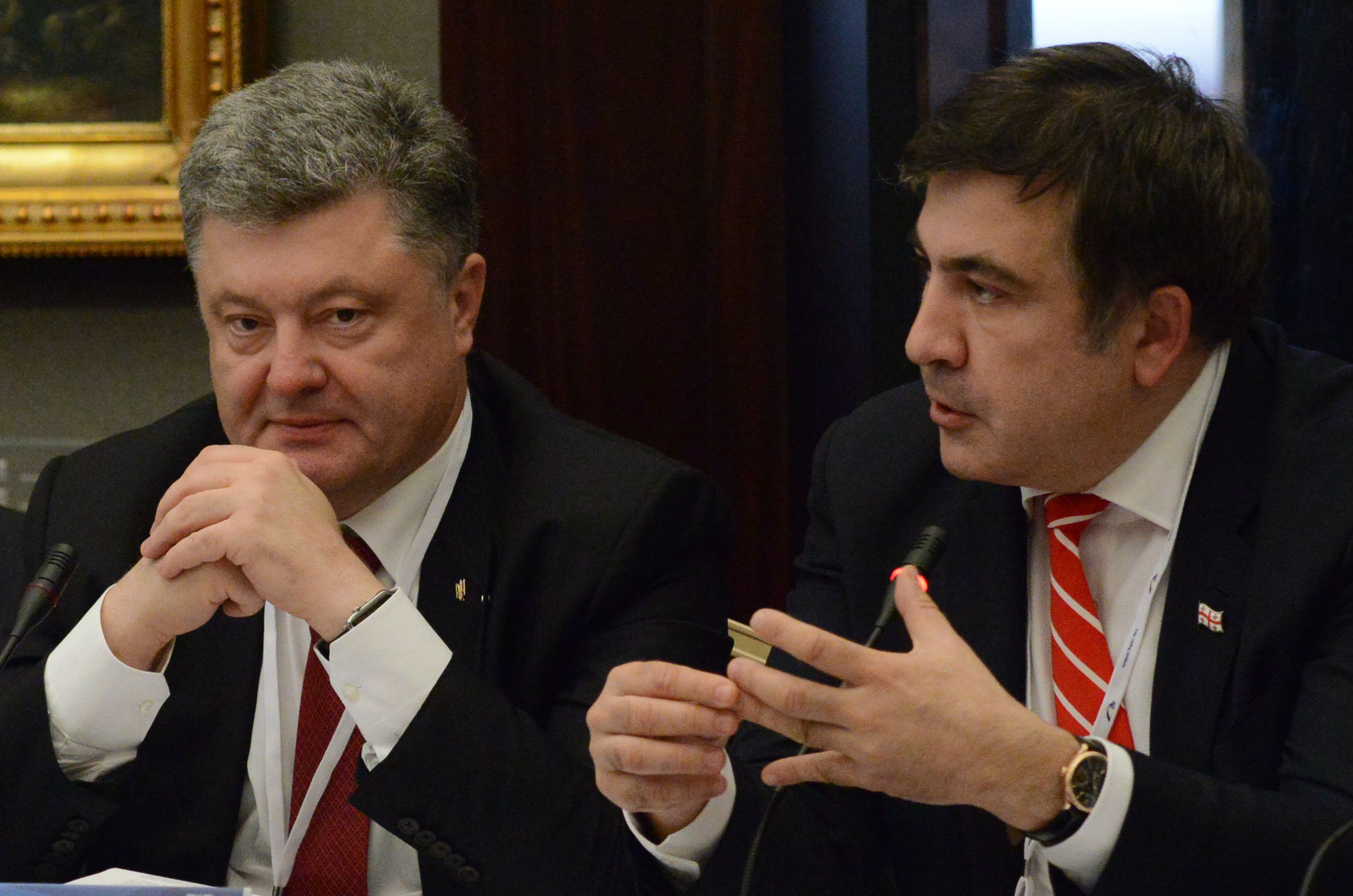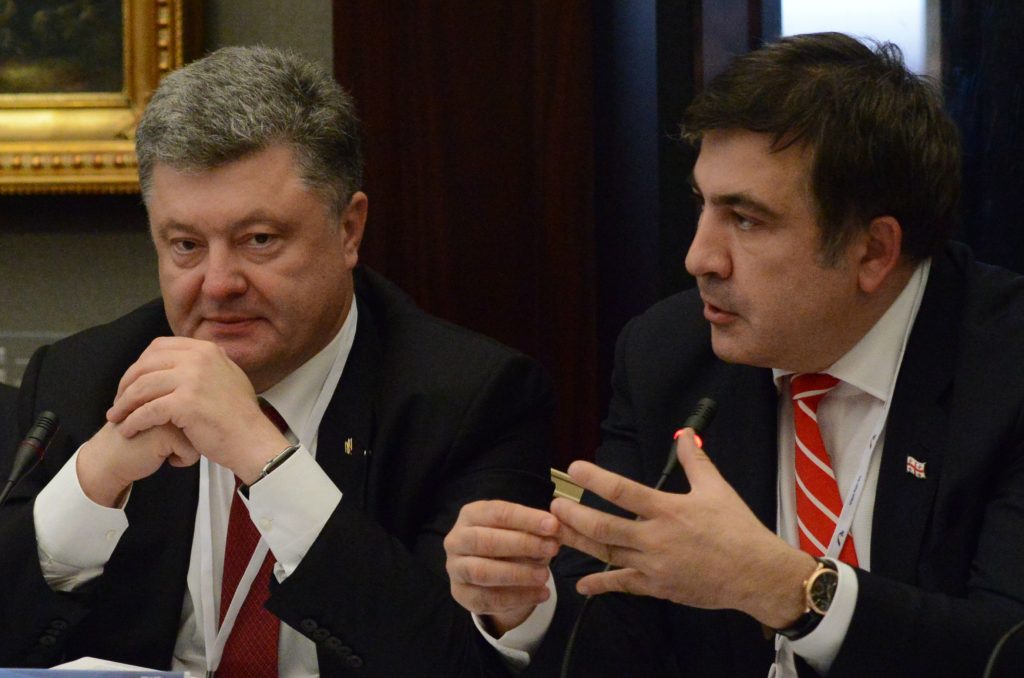 On May 30, Ukrainian President Petro Poroshenko named former Georgian President Mikheil Saakashvili Governor of the Odesa region. There are a number of ways to interpret the bold move, but two historical analogies may be more apt: Saakashvili is either following in Duke of Richelieu’s footsteps as an outside Governor of Odesa or the late CIA Director Richard Helms’ path. Ukrainian politics are murky, but in Saakashvili’s case, the motivation behind his appointment looks like a mixed bag. Saakashvili has been simultaneously promoted and exiled.
On May 30, Ukrainian President Petro Poroshenko named former Georgian President Mikheil Saakashvili Governor of the Odesa region. There are a number of ways to interpret the bold move, but two historical analogies may be more apt: Saakashvili is either following in Duke of Richelieu’s footsteps as an outside Governor of Odesa or the late CIA Director Richard Helms’ path. Ukrainian politics are murky, but in Saakashvili’s case, the motivation behind his appointment looks like a mixed bag. Saakashvili has been simultaneously promoted and exiled.
In 1803, Odesa was just nine years old when Tsar Alexander I appointed Richelieu as Governor. Richelieu had been exiled from France during the French Revolution and had served as a Major General in Catherine the Great’s army during the Russo-Turkish war. The appointment of a foreigner as Governor of Odesa was unprecedented in Russian history. Richelieu’s experience at the French court proved useful in effectively governing the new region. Odesa became the third-largest city in Russia at the time. Richelieu is considered a founding father of Odesa and his statue sits at the top of the city’s Potemkin Stairs. If Saakashvili reforms Odesa in a similar manner, a Saakashvili monument might be erected on Deribasivska Street.
Another historical precedent also might fit. In February 1973, US President Richard Nixon abruptly fired Helms from his CIA post and appointed him US Ambassador to Iran. The move was as much surprising for its Machiavellian boldness as it was confusing. While it was clear that Iran was an important US ally at the time, the appointment of Helms as Ambassador was an obvious demotion. Even so, the appointment was of such importance that any real patriot could not refuse. Similarly, Saakashvili has been appointed to watch over a critical region but removed from day-to-day decision-making as Head of the International Advisory Council on Reforms in Kyiv.
Poroshenko needed a strong leader to govern a key region under pressure from Russia. At least four local political figures made the short list for the job, but they could have shifted the balance of power among competing business interests in the region, so Poroshenko opted for an outsider. None had Saakashvili’s international profile or connections. Saakashvili also has a positive, preexisting relationship with billionaire Ihor Kolomoyskyi—who controls Odesa’s ports.
Poroshenko also needed a zealous reformer. Odesa is consistently rated one of the most corrupt regions in Ukraine. Saakashvili reformed Georgia’s notoriously bad traffic police and waged a public fight against graft. His governorship of Odesa is thought to be a trial until the end of the year aimed at ensuring a fair mayoral election in October and testing his ability to replicate Georgia’s successful reforms in Ukraine. There’s already speculation that Saakashvili might be rewarded with a bigger job if he succeeds in Odesa.
It’s no secret that Saakashvili has a larger-than-life personality. He may have gotten in the way in Kyiv. The Odesa appointment comes just three months after Saakashvili’s appointment as Head of the International Advisory Council on Reforms.
Saakashvili recently embarrassed Poroshenko in a move that made international headlines in May. Saakashvili was responsible for the Ukrainian government’s embarrassing error with US Senator John McCain. Saakashvili announced that he’d appointed McCain to the Council on Reforms, although McCain denied it. Behind the scenes, Saakashvili had included McCain’s name on Council on Reforms’ list of members without his consent while assuring Poroshenko that the Republican Senator had agreed. The US State Department scolded Poroshenko for the blunder. Saakashvili’s desire to impress Poroshenko led him to assume that his strongest supporter in the US Senate would readily agree. Regardless of the motivation, it flustered Poroshenko and revealed Saakashvili as careless at best and deceptive at worst.
In addition, Saakashvili’s well-known personal excesses are thought to be an ongoing source of tension with Poroshenko at a time when Ukraine is at war.
In Mark Twain’s travelogue, he wrote Richelieu “watched over [Odesa] with paternal care—labored with a fertile brain and a wise understanding for its best interests—spent his fortune freely to the same end—endowed it with a sound prosperity, and one which will yet make it one of the great cities of the Old World.” Let’s hope that Saakashvili follows Richelieu’s example as he seeks to transform Odesa into one of the greatest cities of the New World.
Brian Mefford is a Nonresident Senior Fellow at the Atlantic Council’s Dinu Patriciu Eurasia Center. He is a business and political consultant who is based in Kyiv, Ukraine. This article has been adapted from Brian Mefford’s blog.
Image: President Petro Poroshenko and Mikheil Saakashvili at the European People’s Party’s Leaders' Meeting on May 21, 2015 in Riga, Latvia. Saakashvili was recently appointed Governor of the Odesa region, which can be viewed as both a promotion and a demotion. Credit: European People's Party.
